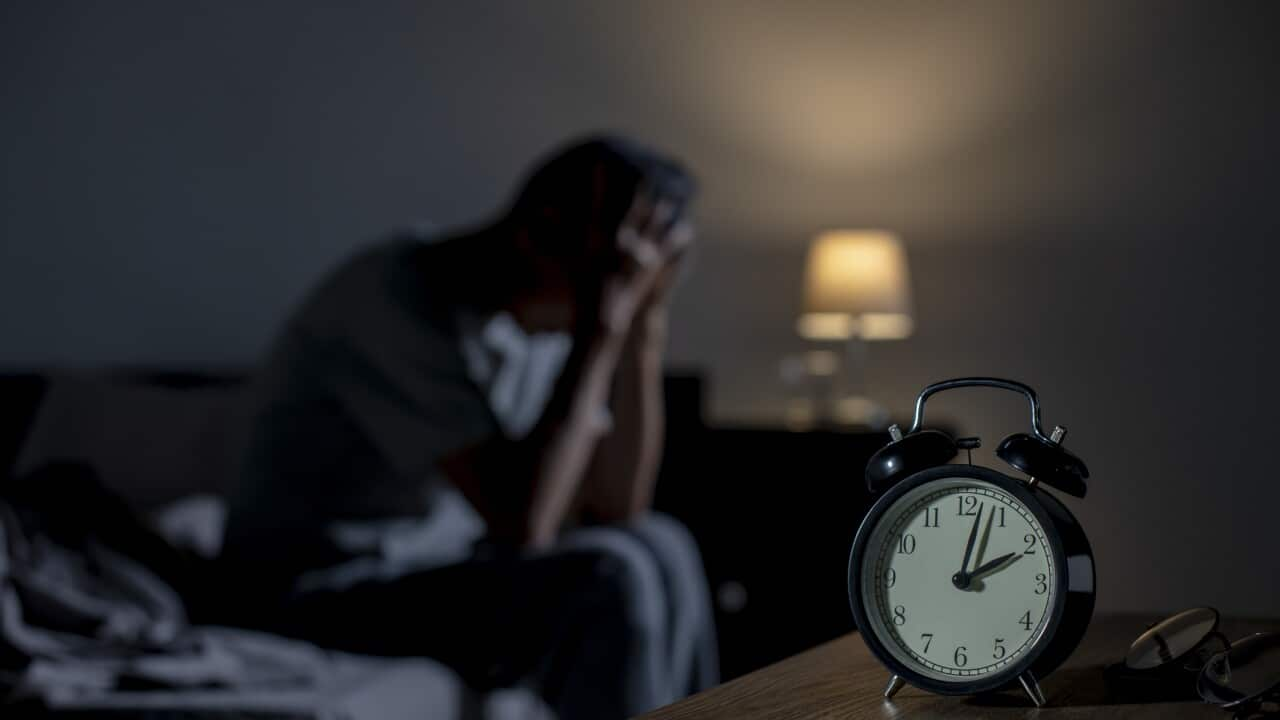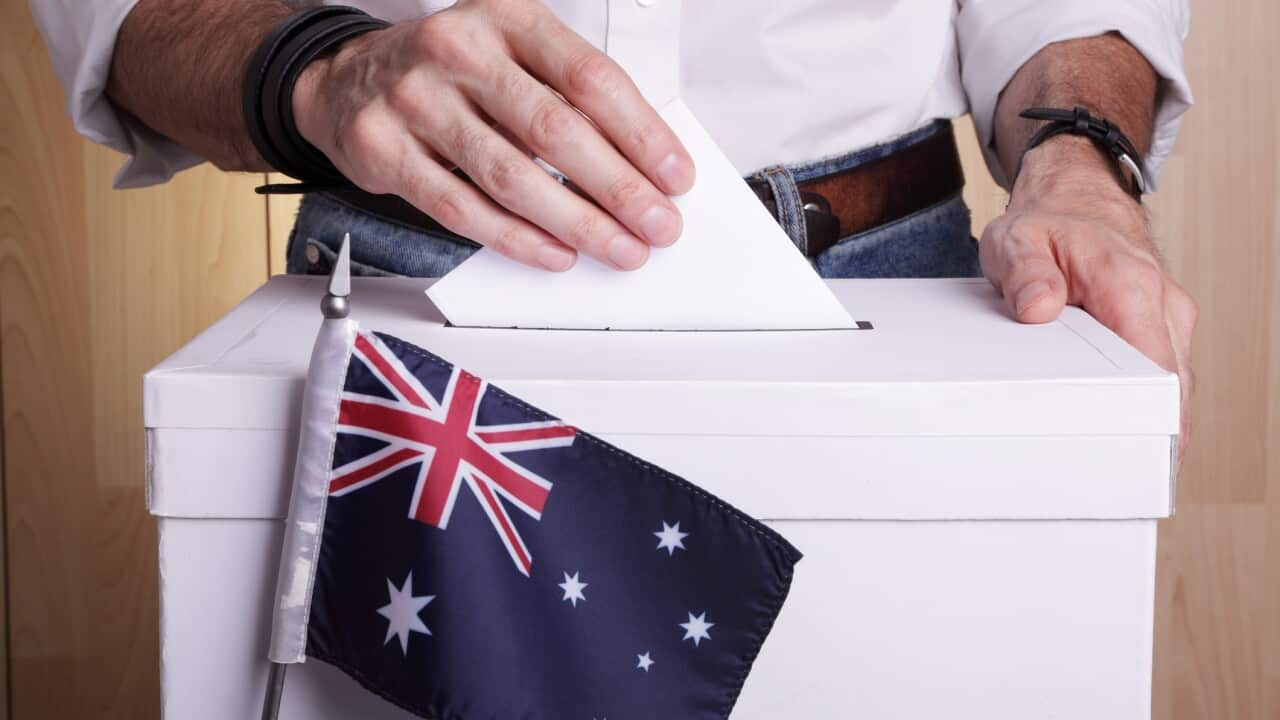Key Points
- Sleep scientists define good quality sleep based on duration, initiation, and maintenance, but sleep is subjective, and needs vary from person to person.
- Previous trauma, the experience of migration and settlement challenges are all factors that can impact your sleep.
- In both adults and children, if sleep issue becomes persistent and impacts daytime functions, it needs to be addressed with medical help.
Sleep matters.
It restores us physically and supports our brain function by helping organise and process information, enhancing cognitive performance and mental clarity.
While some of us cope with lack of sleep better than others, .
But what exactly is adequate sleep?
Associate Professor at the University of Queensland Fatima Yaqoot, a sleep scientist and epidemiologist, unpacks the layers that define a good night’s sleep.
“Sleep duration is one thing. You need to sleep for a certain number of hours to feel refreshed.”
Guidelines for adults recommend seven to nine hours, but it can vary from person to person.
The ability to fall asleep with 15-20 minutes of going to bed and maintaining what scientists call an uninterrupted ‘sleep episode’ are also key factors.
“People who generally keep tossing and turning in bed for a very long time before they doze off to sleep, their sleep is not considered great. And if they are waking up regularly, it's also not a sign of healthy sleep,” Associate Professor Yaqoot explains.
But the biggest indicator is the way you feel when waking up.
“How you feel when you wake up—If you feel refreshed and rested, then you had a good night's sleep.”

The biggest indicator of healthy sleep is the way you feel when you wake up. Credit: miodrag ignjatovic/Getty Images
Breaking up the day with a brief power nap can indeed rejuvenate you, A/Prof Yaqoot says.
“But if napping is like a mini sleep, more than half an hour, then it does impact your night-time sleep.”
Migration stressors and sleep: a two-way relationship
It is normal for migrants to experience disruptions in their sleep patterns in the short term, A/Prof Yaqoot says.
“People leave their home country, their family, and their comfort zone, they come to a new place and there's job uncertainty, there’s a new culture, a new society, so settling in takes time, and there's jet lag…”
But if those stressors are not removed, they are prone to developing chronic sleep issues.
People who had previously experienced trauma in their home country are even more vulnerable.
A found that more than 75 per cent of refugees and asylum seekers, both adults and children, reported moderate to severe sleep disturbances.
Social worker Krista Senden is the practice leader at Foundation House, a Melbourne-based specialist refugee trauma agency.
She says that sleep disturbance is one of the most persistent symptoms of clients they see suffering from post-traumatic stress disorder (PTSD).
“Around 50 per cent of people who have received some kind of treatment for their trauma, report sleep disturbances continue.”
But it’s not just pre-arrival trauma, yours or of a loved one, that can affect your sleep.
“We know that cultural differences exist in sleep and awake patterns. But also, settlement factors… or staying up late or waking up early to keep the hours of the country of origin so they can speak to loved ones or follow news or emerging events overseas, impact the sleep patterns of the clients that we see,” Ms Senden says.
Time is of the essence when getting support if you experience sleep problems, she adds.
Research suggests that there's a correlation between getting adequate sleep and recovering from trauma and the impact of migration stress.Krista Senden, Practice Leader, Foundation House
Chris Seton, a paediatric and adolescent sleep physician, agrees.
Migrant teens are more at risk of experiencing insomnia compared to their non-migrant peers, due to added stresses related to moving to a new country, directly impacting their mental health.
“So, if a boy or girl has a vulnerability to anxiety or depression, two of the potent things that will bring that out are stress and/or sleep deprivation.”
But treating their sleep problems, he says, makes them more resilient in dealing with life challenges.

Teenage insomnia is fuelled by stressors such as daily schedules, parental expectations and screen use at night. Credit: Alihan Usullu/Getty Images
“The stresses are still there, but they cope with it better if they sleep well.”
It's never too early to seek help
Working at the sleep clinic at the Sydney Children's Hospital at Westmead, Dr Seton diagnoses sleep problems for children, from newborns to 18 years.
A sleep problem is anything that a parent or a GP perceives as a problem, he explains.
“Sometimes people worry, you know, my son or daughter, should they go to the sleep clinic or should they not? The way to tell is, is there a sleep problem there? Are they waking at night? Is their sleep disturbed? Do they have trouble getting to sleep? And importantly, are they tired the next day?”
When it comes to families sleeping together, Dr Seton says it’s wrong to assume that it necessarily causes sleep problems.
“We don't see co-sleeping as a medical problem. We see it as a parent choice.
There are cultures where co-sleeping is pretty much ubiquitous. So, in fact, we see lots of families who co-sleep.Dr Chris Seton, Paediatric and Adolescent Sleep Physician
Co-sleeping, he says, becomes an issue when it leads to sleep deprivation.
“We see a lot of young kids who, when they go sleeping, are very tactile, they want to touch their parents, they lie over the top of them, they kick them, push them, pull their hair. And all that for the child is very reassuring. But for a mum or a dad, it can be sleep-depriving.”
When a family reaches out to a sleep clinic, the doctor will address the child’s sleep behaviour.
“We use various psychological strategies, reward strategies, reinforcing good sleep behaviour, to help parents reverse that.”

Sleep clinics can diagnose sleep problems even in infancy. Credit: SolStock/Getty Images
“The first thing people need to do to maintain a healthy internal body clock is getting optimal sunlight exposure. One good strategy is when you wake up, to just remove your curtain and get some sunlight.”
There are also things you can avoid, like drinking caffeine late in the afternoon or exercising vigorously late at night.
Limiting your exposure to devices and using mindfulness or relaxation techniques before bedtime can also help set you up for a decent night’s sleep.
But ultimately, when sleep issues are repeated and impact your day functions and ability to focus, you need to reach out for medical help.
“If it becomes a problem like initiating or maintaining or continuing sleep for certain hours, more than three times a week for several weeks, that's where they need to go and talk to their GP,” A/Prof Yaqoot says.
“Because these are signs of either insomnia or another underlying issue that's impacting their sleep.”
- For information on sleep disorders and sleep hygiene tips visit the website.
- To see a sleep clinic physician ask your GP or paediatrician to refer you to your closest specialist clinic.
Subscribe to or follow the Australia Explained podcast for more valuable information and tips about settling into your new life in Australia.













